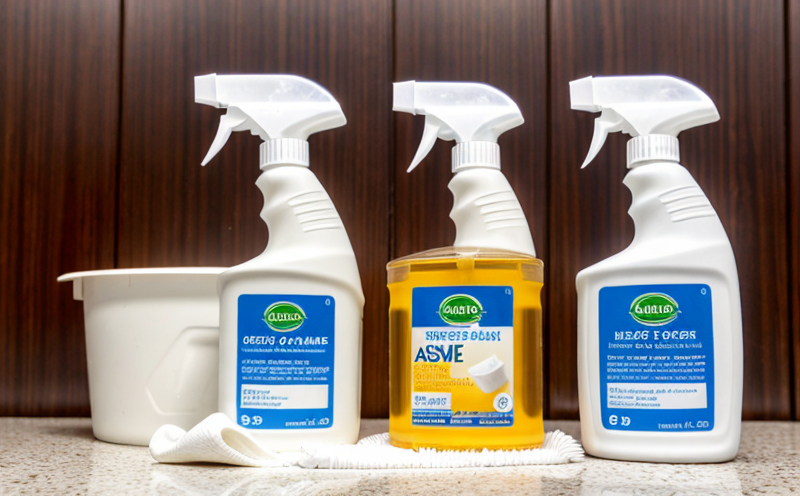GB T 21866 Antifungal Activity Testing in Cleaning Products
The GB/T 21866 standard provides a method for determining antifungal activity of cleaning products. This testing is critical for ensuring that the fungicidal agents within these products are effective against targeted fungi, thereby enhancing their efficacy and reliability.
Antifungal agents in cleaning products play a crucial role in preventing mold growth and maintaining hygiene standards. These agents must be tested rigorously to ensure they meet regulatory requirements and consumer expectations. GB/T 21866 specifies the procedure for evaluating the fungicidal efficacy of these agents, which is essential for quality control, product development, and compliance with international standards.
The testing method outlined in this standard involves exposing test samples to a fungal inoculum under controlled conditions. The growth or survival rate of fungi after exposure helps determine the antifungal activity. This process ensures that cleaning products can effectively combat fungi, thereby promoting cleaner environments.
For accurate and reliable results, it is essential to follow the standardized procedures meticulously. These include precise preparation of fungal inoculum, controlled environmental conditions during testing, and careful observation and measurement techniques. Compliance with GB/T 21866 ensures that cleaning products meet stringent antifungal activity standards, thus enhancing consumer confidence in their safety and effectiveness.
The implications of this testing extend beyond laboratory results; they impact the quality assurance processes within manufacturing facilities. By adhering to this standard, manufacturers can ensure consistent product performance and reliability. This is particularly important for industries where hygiene and cleanliness are paramount, such as healthcare facilities, food processing plants, and commercial buildings.
Moreover, the results of GB/T 21866 testing contribute significantly to regulatory compliance. Regulatory bodies rely on these tests to verify that cleaning products meet specified antifungal activity levels. This ensures that consumers can trust the products they use, knowing they are effective in preventing mold and fungus growth.
In conclusion, GB/T 21866 is a vital standard for ensuring the efficacy of antifungal agents in cleaning products. By following this method meticulously, manufacturers can enhance product quality and reliability while meeting regulatory requirements. This testing process plays a crucial role in maintaining hygienic standards across various sectors.
Customer Impact and Satisfaction
The results of GB/T 21866 Antifungal Activity Testing directly impact customer satisfaction by ensuring that cleaning products are effective in combating fungi. This enhances the overall hygiene and cleanliness of environments where these products are used.
Manufacturers who follow this testing method can offer products with consistent antifungal activity, leading to higher customer trust and loyalty.
The effectiveness of cleaning products is crucial for various industries, including healthcare, food processing, and commercial buildings. By meeting GB/T 21866 standards, manufacturers ensure that their products perform as expected in these critical environments.
Regulatory compliance through this testing method also supports customer satisfaction by ensuring that products meet strict safety and efficacy standards.
International Acceptance and Recognition
The GB/T 21866 standard is widely recognized in China for its role in ensuring the antifungal activity of cleaning products. Its acceptance extends beyond national borders, with many international laboratories adopting it as a benchmark.
This standard aligns with global efforts to promote hygiene and cleanliness, making it an essential tool in maintaining high standards across various sectors. The widespread recognition of GB/T 21866 underscores its importance in the chemical testing industry and its contribution to international best practices.
Environmental and Sustainability Contributions
The effectiveness of antifungal agents in cleaning products, as determined by GB/T 21866 Antifungal Activity Testing, contributes significantly to environmental sustainability. By preventing mold and fungus growth, these products help maintain cleaner environments, which can reduce the need for chemical treatments.
This testing method ensures that cleaning products are effective while minimizing their environmental impact. It supports sustainable practices by promoting hygiene without compromising ecological balance. The results of this testing directly contribute to a more hygienic and environmentally friendly world.





